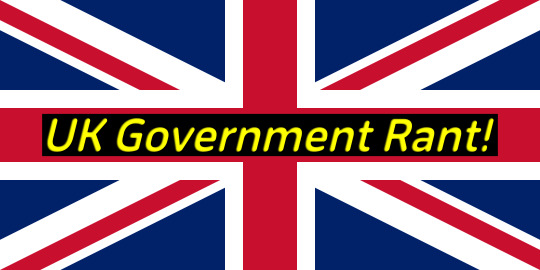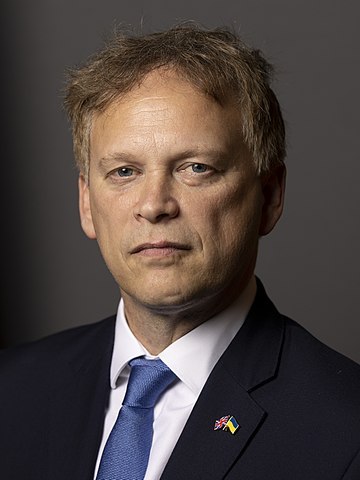#ukgovernment
Text
Pfizer executives and UK government officials could face manslaughter charges as a new criminal probe seeks to hold those responsible for the mass mRNA deaths to account.
#pfizer#ukgovernment#vaccines#vaccinedeaths#vaccineinjuries#uk#mrna vaccine#biontech#crimes against humanity#big pharma#crimesagainsthumanity#depopulation agenda#depopulationagenda#died suddenly#suddendeaths
4 notes
·
View notes
Photo

"Ah, of course, 2022, the year the UK government fell into ruin. I think I'll skip over this one."
#doctorwho#lego#tardis#legotardis#bbc#bbc100years#bbcdoctorwho#ukgovernment#liztruss#timetravel#ukprimeminister#afol#afolcommunity#afolphotography#minifigures#legominifigures#brickcommunity#bricknetwork#brickphotography#legostagram#instalego#timeandrelativedimensioninspace#biggerontheinside
20 notes
·
View notes
Text

Conversation about weather is the last refuge of the unimaginative - OW
#ukgovernment#britishproblems#britishweather#winter#frosty#blanket#snowfall#powder#frost#cold#musings#goodmorning#black british#weather
10 notes
·
View notes
Text
Cyber Security Playbook launched in the UK

The Department for Science, Innovation, and Technology (DSIT) has this week launched the alpha Secure Connected Places Playbook for local authorities, a new resource offering practical and accessible support to improve the cyber security of their connected places, or ‘smart cities’, across the UK.
Connected places are communities that integrate information and communication technologies, as well as Internet of Things (IoT) devices, to collect and analyse data to deliver new services to the community and enhance the quality of living for citizens. These improvements feature across a wide array of areas, including key public services such as transportation, utilities and wider infrastructure.
Given the large amount data they collect, the interconnected nature of their systems, and the potential impact on local infrastructure, connected places can be attractive targets to hostile actors. This Playbook will help local authorities set a foundation to protect themselves against would-be cyber threats.
Created in collaboration with a group of local authorities, the alpha Playbook provides practical cyber security support as communities increase their use of innovative solutions, such as automated traffic and waste management systems, and smart environmental monitoring.
Minister for Cyber, AI, and Intellectual Property, Viscount Camrose, said:
Connected places offer enormous benefits for the entire country, not just through improved public services for our communities, but through new innovations which will unlock better-paid jobs and grow our economy.
We are already world leaders in cyber security, as demonstrated by through pioneering measures such as the Product Security Regime. It’s vital that this expertise carries over to the development of our connected places.
This Playbook will help do exactly that – offering practical and accessible support to local authorities as we work collaboratively to grow secure and sustainable connected places across the UK.
Designed to be accessible for those without a technical background, the alpha Playbook will help local authority teams who are working on connected places projects to get their cyber security foundations right and set a strong security culture in the process.
The alpha Playbook addresses several key cyber security challenges which local authorities face in the deployment of connected places technologies, including a resources on cyber security governance, risk management, procurement and supply chain security, as well as guidance on how to conduct threat analysis.
A diverse group of local authorities has contributed to its creation, ensuring it can address the diverse practical needs of communities across the country. The contributing authorities were:
- Bradford Metropolitan City Council
- Westminster City Council
- Dorset Council
- Merthyr Tydfil County Borough Council
- The South London Partnership
- Perth and Kinross Council
DSIT is committed to continuing its work with local authorities to ensure that the alpha Playbook continues to work for their practical needs. Today, DSIT is inviting applications from local authorities to participate in the next phase of the project, beta testing the alpha Playbook. This will involve an expanded cohort of 12 local authorities who will receive dedicated cyber security support to apply and refine the advice in the alpha Playbook. This will inform a beta version of the Playbook targeted for publication next year.
Feeding into the government’s National Cyber Strategy and complementing existing guidance published by the National Cyber Security Centre, the playbook helps cement the UK’s place as a global leader in secure and sustainable connected places.
Read the full article
2 notes
·
View notes
Text
#uk#uklivingcrisis#uklivingcosts#livingcrisis#livingcosts#ukgovernment#ukcomedy#artist#sketch#doodle#british#britishproblems#britishhumour#britian
5 notes
·
View notes
Photo

Is it just me that sees #mrpotatoehead
#potato#head#mrspotatohead#mrs potato head#mrpotatohead#mr potato head#mrt#rishisunak#rishi sunak#borisjohnson#boris johnson#ukgovernment#uk government#toystory#toy story#buzzlightyear#buzz lightyear#uk#uk politics#uk prime minister
3 notes
·
View notes
Text

Post: UK blames China for massive breach of voter data | TechCrunch https://www.blaqsbi.com/5NnD
0 notes
Text
UK Government Boosts Wind Farms for Cleaner Energy!
#carbonemissions #offshorewindfarms #renewableenergy #subsidies #UKgovernment
0 notes
Text
DEMSA 📢 #Announcement
The Department for Work & Pensions and HM Revenue and Customs will carry out a £299 Cost of Living Payment between February 6 and February 22.
Approximately 8 million households are slated to receive the payment automatically, so there isn't any necessity for suitable individuals to submit applications.
Additional details can be found on “ https://gov.uk/helpforhouseholds ” website. 🖱

0 notes
Text
UK Takes Bold Steps: Domestic Homicide Reforms

Tackling a Grim Reality: Domestic Homicide Takes Center Stage
In a groundbreaking move, the UK government is considering a comprehensive review of sentencing policies for domestic homicide, with a specific focus on cases where weapons are already present at the crime scene. As it stands, approximately 90 people, predominantly women, fall victim to domestic homicide each year, a grim statistic that prompts urgent action.
A Sobering Reality: One in Four Murders Linked to Partners or Relatives
Expressing deep concern, Lord Chancellor and Justice Secretary Alex Chalk highlighted the shocking reality that one in four murders stems from a current or former partner or relative. Acknowledging the pressing need for cohesive and effective measures, the government is committed to confronting the scourge of violence against women directly.
Examining Current Sentencing Disparities
Currently, intending to use a weapon, particularly a knife, at the murder scene triggers a 25-year sentencing starting point. This mirrors the increased risk to public safety when individuals carry weapons on the streets. Conversely, if a weapon, though still a significant factor in the crime, isn't taken to the scene, the starting point decreases to 15 years.
Voices of Advocacy: Carole Gould and Julie Devey
Campaigners like Carole Gould and Julie Devey, who tragically lost their daughters to former partners using knives found in the home, are instrumental in drawing attention to this issue. Their heartbreaking experiences highlight the need for a thorough examination of sentencing policies.
A Step Towards Justice: Consultation on Sentencing Policies
Justice Minister Gareth Bacon emphasized the need to reevaluate sentences for killings that are the culmination of controlling and coercive relationships. The government aims to ensure that sentences reflect the sustained and unacceptable abuse endured by victims in such relationships.
A Response to Clare Wade’s Review: New Laws Introduced
In response to Clare Wade’s independent review of sentencing in cases of domestic homicide, the government has introduced legislation to address the severity of these crimes. The new laws include:
- Making "overkill" a statutory aggravating factor for longer sentences.
- Considering previous controlling or coercive behavior as a mitigating factor.
- Recognizing killings connected with the end of a relationship as a statutory aggravating factor.
A Historical Perspective: The Domestic Homicide Sentence Review
Initiated in 2021, the Domestic Homicide Sentence Review examines the current sentencing framework's adequacy and identifies potential areas for improvement. This comes in the wake of high-profile domestic murders and concerns expressed by the Victims’ Commissioner and Domestic Abuse Commissioner regarding the justice system's handling of such offenses.
Government's Commitment: Tough Measures to Keep Offenders Locked Up
This move is the latest in the government's commitment to being tough on crime, including the end of automatic release for sex and terrorist offenders and introducing a minimum 14-year jail term for serious terror offenses.
Strengthening the Fight Against Domestic Abuse
The government's commitment to tackling domestic abuse extends beyond sentencing policies. Additional measures include:
- Quadrupling funding for victim support services since 2010.
- Legislating to put controlling or coercive behavior on par with physical violence.
- Trialing stricter management of domestic abusers, including electronic tagging and behavior change programs.
- Adding violence against women and girls to the Strategic Policing Requirement.
A Comprehensive Approach: Towards a Safer Future
This proposed review and the accompanying legislative changes represent a comprehensive approach to combatting domestic homicide and abuse. The government's commitment to justice, victim support, and prevention signals a step toward a safer future for individuals affected by these heinous crimes.
Sources: THX News, Ministry of Justice, Gareth Bacon MP, & The Rt Hon Alex Chalk KC MP.
Read the full article
#ClareWade'sreview#Controllingrelationships#Domesticabuselegislation#Domestichomicide#DomesticHomicideSentenceReview#GarethBacon#High-profiledomesticmurders#JusticeMinister#Sentencingpolicies#UKGovernment#Victims'Commissionerconcerns
0 notes
Text
#AISafetySummit#ChinaEspionage#UKGovernment#GlobalCooperation#Diplomacy#ArtificialIntelligence#EspionageScandal#UKChinaRelations#ParliamentaryAide#No10DowningStreet#Cybersecurity#IntelligenceAgencies#PoliticalIntrigue#TechnologyNews#DiplomaticChallenges#Geopolitics#GlobalSecurity#NationalSecurity#SummitControversy#ArtificialIntelligenceCooperation#UKPolitics#EspionageAllegations#UKParliament#InternationalRelations#InternationalCollaboration#CurrentAffairs#GlobalAI#AIDevelopment#AIknowsNoBorders
0 notes
Text
Ah, the UK government Rant!
Ah, the UK government, a shining beacon of efficiency, innovation, and problem-solving! I mean, it's not like they've been playing a never-ending game of Brexit charades for years, right? Who needs stability and certainty when you can have a good ol' political drama to keep everyone entertained?
And let's not forget their handling of the pandemic. It's truly admirable how they've managed to navigate the ever-changing rules and guidelines like seasoned tightrope walkers. It's as if they have a magical crystal ball that foretells the future, and they just love keeping the public on their toes with surprise announcements and U-turns.

The UK government's approach to public services is also truly commendable. Long waiting times for healthcare? Understaffed schools? Dilapidated public transport? Don't worry; they've got everything under control! I mean, who needs well-funded and efficient services when you can have a perfectly organized chaos, right?
And the way they handle public finances is simply awe-inspiring. It's like watching a magic trick; they make the money disappear, and nobody knows where it went! But hey, why should we be concerned about fiscal responsibility when we can just keep printing money and crossing our fingers?
Of course, their commitment to transparency is truly praiseworthy. They're like ninjas when it comes to hiding crucial information and deflecting accountability. It's almost as if they've mastered the art of dodging difficult questions like a pro!
And let's not forget about their progressive stance on climate change. I mean, why bother taking bold actions to protect the planet when you can just make vague promises and set distant targets? After all, it's not like the Earth is in dire need of urgent action or anything.
In conclusion, hats off to the UK government for their unparalleled ability to navigate through challenges with ease, to provide us with endless entertainment, and to always keep us guessing. It's truly a privilege to be governed by such masterminds of governance! Bravo! 👏
#UKGovernment#SarcasmAtItsFinest#PoliticalDrama#BrexitCharades#PandemicHandling#PublicServices#FiscalResponsibility#TransparencyNinjas#DodgingAccountability#ClimateChangeCommitment#PoliticalHumor#BureaucraticHurdles#EntertainmentPolitics#MagicalFinances#PoliticalMasters#EndlessSurprises#NavigatingChallenges#WellOiledMachine#EfficiencyAtItsBest#PublicTransportWoes#HealthcareStruggles#EducationSystem#NationalDebtWoes#FutureGenerations#ChangingGuidelines#UKelections#PoliticalCircus#ClimateTargets#RedTapeProblems#UnpredictableLeadership
0 notes
Text
News from Namibia, 21 July
The Ministry of Environment, Forestry and Tourism in Namibia has issued an Environmental Clearance Certificate to Recon Africa for further oil and gas exploration in the Kavango Basin, despite controversy over the potential negative impact on the environment.
The approval of the certificate was done in accordance with national laws and regulations, ensuring that the project meets environmental standards and mitigates its impact.
Namibia recognizes the importance of balancing its energy sector development with its commitment to reducing greenhouse gas emissions and combating climate change, and believes that the oil and gas industry can coexist with these goals.
2. The National Council has approved a bill that will bring poultry, pork, and dairy products under the same regulatory authority as meat in Namibia.
The amendments to the Meat Industry Act will allow the Livestock and Livestock Products Board to effectively manage the importation of dairy, pork, and poultry products and address legal challenges faced in the past.
The inclusion of poultry and dairy in the bill will benefit local producers and consumers by regulating these subsectors and leveraging the expertise and resources of the existing Meat Board.
3. The UK is implementing visa requirements on visitors from Namibia and four other nations over what it claims are concerns about abuse in the migration system, particularly through citizenship by investment schemes and fraudulent asylum claims.
Namibia and Honduras rank highest among non-visa nationals for asylum claims, contributing to operational pressures and diverting resources from other priorities.
The UK government's crackdown on migrants attempting to claim asylum includes the Illegal Migration Bill, which has faced criticism from UN human rights officials for potentially violating international law.
#NamibiaEnvironment#OilAndGasExploration#EnvironmentalClearanceCertificate#KavangoBasin#GreenEnergy#ClimateChange#NationalCouncil#LivestockRegulations#Poultry#Pork#Dairy#MeatIndustryAct#UKVisaRequirements#MigrationSystem#CitizenshipByInvestment#AsylumClaims#HumanRights#InternationalLaw#UKGovernment#NamibiaUKRelations
0 notes
Text
AI to help UK industries cut carbon emissions on path to net zero

Artificial intelligence (AI) is set to transform the way industries cut their carbon emissions thanks to a multi-million-pound government investment announced today (Tuesday 15th August).
Twelve green AI initiatives will receive a share of £1 million to decarbonise and boost generation of renewable energy, contributing to reaching the country’s ambitious net zero goal by 2050.
The schemes range from solar energy improvements, that use AI to improve the forecasting of when it will best produce energy for the grid, to the decarbonisation of dairy farming through the use of AI robots monitoring crop and soil health.
Even AI itself could reduce its carbon footprint, with one project developing hardware that will mimic the human brain so that a computer can reduce power consumption when performing AI tasks.
On top of this, government will provide a further £2.25 million to support further AI innovations, with the aim of cutting emissions specifically in energy sectors.
This forms part of the government’s £1 billion Net Zero Innovation Portfolio and cements the UK’s position firmly at the forefront of AI and decarbonisation.
Minister for Energy Efficiency and Green Finance Lord Callanan said:
We are unquestionably world-leading when it comes to advanced AI and our track record for decarbonisation.
This unique position means we must now push the boundaries in how this technology can enhance our rapidly-growing clean energy sector.
It’s projects like those announced today that will take us to the next step on our ambitious journey to becoming net zero, while boosting our energy security and creating a new wave of skilled jobs for the future.
Minister for AI and Intellectual Property, Viscount Camrose, said:
AI is delivering transformative change in the UK. These winning projects are yet another example of how we are tapping into our world-class research base and home-grown expertise to tackle one of the most pressing global challenges of our time.
Whether backing projects to help us slash emissions or supporting research to revolutionise healthcare for patients, we’re harnessing the enormous potential of AI technologies to improve people’s lives.
The government’s Digital Catapult agency, which is part of Innovate UK and supports businesses in progressing their ideas, has also today received up to £500,000 to launch the UK’s first Centre for Excellence on AI innovation for decarbonisation (ADViCE).
This will provide a virtual hub that will bring together businesses, academics and experts to advance research into AI solutions that will help industries cut emissions.
CEO of Digital Catapult, Dr Jeremy Silver, said:
The ADViCE programme will drive forward AI’s integral role in solving critical decarbonisation challenges. The programme partners sit at the heart of the UK’s dynamic AI ecosystem and are perfectly placed to forge collaborations between the technology community and some of our most carbon intensive sectors.
Smart use of AI and data will be fundamental to meeting the UK’s net zero commitment. ADViCE will support those building the algorithms and those investing in AI solutions in the most impactful way possible.
The AI projects to receive a total of £1 million to develop new decarbonisation solutions include:
- Secqai Ltd. in London will receive £100,000 to support the development of new ultra-low-power AI technology, which mirrors the neural structure of the human brain. This new system will consume a fraction of the power of traditional AI hardware, helping to cut its carbon footprint
- £121,500 for London-based Open Climate Fix Ltd. to develop AI that will support the connection of solar electricity to the energy grid. The technology will use satellite and weather data to forecast the amount to solar energy being transferred to the grid, to reduce network congestion and maximise the amount of renewable energy transmitted
- £133,932 will also support a solar energy project run by the University of Nottingham. In this project, AI will improve the forecasting of solar energy production, using sky images and weather data
- £132,147 will help list.io Ltd. to create a new agriculture robotics that will provide an automated soil and crop health monitoring system, to support decarbonisation in crop management and dairy farms
The government has today announced a further £2.25 million under its AI for Decarbonisation Programme, taking the total funding provided to £3.75 million. Energy firms, software developers and innovators have until 10 October 2023 to apply.
Read the full article
0 notes
Text
UK's Plans to Weaken Encryption Raise Privacy Concerns
Privacy advocates around the world are concerned about the UK government’s plans to weaken encryption. This move could potentially compromise the privacy of millions of individuals, leaving their personal information vulnerable to hackers. And other cybercriminals the UK government argues that they need to be able to access. Encrypted messages to prevent terrorism and other serious…

View On WordPress
#Cybercrime#dataprotection#Encryption#onlinesecurity#PrivacyAdvocacy#UKGovernment#what end to end encryption ensures#who is the CEO of signal UK
1 note
·
View note
Text
UK and Korea Partner For Extra Energy Security
Speech Delivered at The Federation of Korean Industries, Seoul, Republic of Korea

Grant Shapps Official Cabinet Portrait. Photo by Simon Dawson at No 10 Downing Street. Wikimedia.
Grant Shapps
Hello. Aha-nyong-ha-se-yo
It is half a century since South Korea turned to the United Kingdom to help develop its first ever car. That vehicle – the Hyundai Pony – was produced with the aid of a British chief executive, British parts, British engineers, and even British finance and of course, … Korean ingenuity and Korean hard work.
But no-one involved with that fledgling project could have imagined what it might lead to. Today, South Korea is the fifth largest automotive manufacturer in the world – and it all happened here.
And Hyundai’s new, electric Ioniq 5 is the current holder of the prestigious World Car of the Year award.
What an incredible catalyst that early collaboration between our two countries in the 1970s proved to be: the beginning of a success story that, 50 years later, goes from strength to strength. And 140 years after Britain and Korea first established diplomatic relations, our two countries are closer today than they have ever been in the past.
We have Korean students in our schools, Korean pop music in our charts – and, thanks to my teenage daughter, in my home - and Korean food shops on our high streets. And the reason I am here today is because we have incredible opportunities to work even more closer together.
On our energy transition, we can create the secure, clean and reliable power that both our economies need to grow. Through the UK-Korea framework, signed last June, both governments reaffirmed commitments to tackling climate change, and co-operating together to enhance energy security, particularly on renewables.
That’s why, as the new UK Secretary of State for Energy Security and Net Zero, I’m so excited to be in Korea this week, and why I’m delighted to be taking part in this fantastic seminar today.
Thank you representative HAN for inviting me.
Our two nations stand together as partners in the energy transition. But we also stand together in condemning Putin’s abhorrent war on Ukraine. The measures we are taking to isolate Russia internationally, punishing it economically, and helping Ukraine defend its sovereign territory.
But although Vladimir Putin’s weaponization of energy has had a huge impact on our markets over the past year, the truth is that Russia’s gas, just like the president himself, belongs firmly in the past.
And our discussions here today is about seizing the future, not retreating backwards. Our future in Britain will be built on renewables, nuclear power and greater energy efficiency, whilst ensuring that the gas used during the transition is from reliable sources - like our own North Sea.
With both our countries recognise the need to speed up the global energy transition to keep 1.5C alive. The IPPC’s Synthesis Report has emphasised the dire consequences should we fail to act.
So I would obviously urge South Korea to bring forward its coal phase-out from 2050, join the ‘Powering Past Coal Alliance’ and incorporate the COP26 ‘Global Coal to Clean Power’ statement into its energy planning.
The UK’s own ‘coal-to-clean’ story has been powered by offshore wind and we are eager to share expertise in this field with you. Electricity produced from coal in the UK has plummeted from 40% in 2012 to just 1.5% last year.
As a result, we are generating record amounts of electricity by wind – over half our total electricity comes from wind power on a good day.
The UK has established itself as a world leader in offshore wind. Our offshore capacity of 13.8GW is the greatest in Europe, and only second to China globally.
We have the three largest offshore farms in the world. Soon, we will have the fourth too. And we have globally-leading ambitions to deploy up to 50GW by 2030, which will include up to 5GW of floating wind platforms.
So we’re scaling-up renewables, and the development of a competitive domestic supply chain, that will meet our decarbonisation objectives. It will also make us more resilient to economic shocks and provide energy security for future generations.
And then there’s the economic opportunities that the transition to clean energy will bring. The tipping point, when holding on to coal and gas power will no longer make economic sense, never mind environmental sense is getting closer and closer.
So we are focused on leveraging private investment alongside the public investment needed to support our ambitions and deliver net zero.
But just as crucial as these domestic priorities we need to collaborate with key international partners too – and that means places like the Republic of Korea. We have so much to offer each other. I would strongly encourage companies which have invested in the offshore wind sector to consider coming to the UK.
In the UK, the Offshore Wind Manufacturing Investment Scheme has made funding available to boost investment in major port and manufacturing infrastructure.
One fantastic example this scheme has supported is a £512 million investment by Korean company SeAH Wind, a subsidiary of SeAH Steel whose CEO I am meeting this week, in a brand-new factory manufacturing offshore wind turbine monopile foundations in Teesside, England: a brilliant example of our two countries working together.
I hope this is just the first of many successful ventures between the UK and the Republic of Korea and I would encourage interested companies to contact the British Embassy here in Seoul to better understand how the UK Government can help further investments.
But the scope for collaboration goes beyond investment in the UK.
The UK is an ally in South Korea’s offshore wind development. You have set an impressive target of 12 GW offshore wind by 2030, with over 25 projects already in development.
This includes huge floating offshore wind potential, which is already attracting UK players to your emerging market. As that market grows, the UK can become an even more trusted partner.
Our expertise covers every phase of policy and project development. We have established experience in oil and gas, marine and subsea, and can offer a unique combination of assets and opportunities to build on current ties between our countries.
The British Embassy in Seoul is already starting this engagement, organising webinars to promote our offshore wind journey - and further areas of partnership. Indeed, UK companies represent 60% of Korean offshore wind engineering contracts.
I have been briefed on Corio Generation’s plan to build a 2.6GW floating wind portfolio of five projects, including working with Shell, on 1.5GW and 1.4GW of floating offshore wind in Ulsan.
BP Renewables and Deep Wind Offshore recently formed a joint venture to develop offshore wind in Korea, with four projects across the Korean peninsula with a potential generating capacity of up to 6 GW.
These examples show the value that the UK can bring to Korea - and what can be accomplished when we work side by side.
So, on this 140th anniversary of UK/Korea diplomatic relations and, as we approach the 50th anniversary of the iconic Hyundai Pony launch, let us look forward to future success.
A future of greater energy security. A future where clean renewables and nuclear power rapidly make fossil fuels obsolete. And a future of close, mutually-beneficial collaboration between Britain and Korea.
Working together, to power our success.
Thank you.
Sources: THX News, Department for Energy Security and Net Zero and The Rt Hon Grant Shapps MP
Read the full article
0 notes